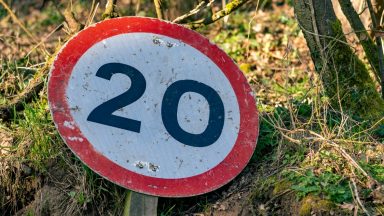A warning has been issued over food supplements containing high levels of caffeine after a man died after ingesting the equivalent of 200 cups of coffee.
The Food Standards Agency, along with Food Standards Scotland, issued the warning on Tuesday urging consumers to be wary of supplements containing caffeine and to calculate their intake alongside other sources such as tea, coffee and energy drinks.
The guidance follows father-of-two personal trainer Tom Mansfield, from Colwyn Bay in Wales, dying in January 2021 after taking caffeine powder the equivalent of up to 200 cups of coffee.
Mr Mansfield had tried to weigh a dose of the powder within a range of 60 milligrams to 300 milligrams using a scale that had a weighing range of 2 grams to 5,000 grams, meaning he ended up consuming several grams.
Common sources of caffeine
Source: FSA
-
 Coffee – one mug of coffee contains around 100-140mg of caffeine, however this can vary
Coffee – one mug of coffee contains around 100-140mg of caffeine, however this can vary -
 Tea – one mug contains around 85mg of caffeine
Tea – one mug contains around 85mg of caffeine -
 Energy drinks – A 250ml can usually contains around 80mg of caffeine
Energy drinks – A 250ml can usually contains around 80mg of caffeine -
 Soft drinks – A 330ml can usually contains around 40mg of caffeine
Soft drinks – A 330ml can usually contains around 40mg of caffeine -
 Chocolate – A 50g bar of dark chocolate contains around 25mg of caffeine, while a 50g bar of milk chocolate contains around 10mg of caffeine
Chocolate – A 50g bar of dark chocolate contains around 25mg of caffeine, while a 50g bar of milk chocolate contains around 10mg of caffeine
Consuming up to 400mg of caffeine per day – equivalent to around four cups of coffee – is unlikely to have an adverse effect on adults, while pregnant women are advised to keep to a limit of 200mg of caffeine per day.
However guidance has been issued over food supplements containing caffeine, sometimes from multiple ingredients such as kola nuts, guarana and certain tea leaves such as black tea.
Caffeine is rapidly absorbed into the bloodstream, with effects starting to take hold 15 to 30 mins after ingestion and can last for a number of hours afterwards.
High levels of caffeine can cause anxiety, sleeplessness, agitation, palpitations, diarrhoea and restlessness, and individuals with a mental health condition can experience worsened psychosis. These effects may be more severe in individuals who are caffeine sensitive and/or have underlying health issues such as heart disease or high blood pressure, and effects may occur at lower doses.
The warning comes after a man in the UK died after miscalculating the amount of caffeine powder he was meant to use, with the dose taken the equivalent of up to 200 cups of coffee.
A survey conducted by the FSA also found less than half of people surveyed look for dosage instructions on supplements, with 20% saying they don’t read the label.
Research has also indicated that many consumers have limited or no knowledge of caffeine in food supplements.
The FSA said the type of food supplements to be aware of include 100% caffeine powder, caffeine supplements sold in dose form, some pre-workout supplements where caffeine is not specified in the name but listed in the ingredients and supplements that do not have caffeine listed on the product but contains a high-caffeine ingredient such as guarana.
Consumers of these types of products have been urged to avoid ‘dry scooping’, whereby food supplement powders are consumed without diluting them with water, which can lead to exceeding the recommended daily dose.
Food supplement users are also urged to follow dosage instructions, use the provided measuring device and to be wary of counterfeit products sold online. Healthcare providers can also offer advice to avoid exacerbating existing conditions or interference with medication.
Professor Robin May, chief scientific advisor at the Food Standards Agency said: “While caffeine is found naturally in many food products, we have evidence that people are unaware of the higher levels of caffeine in some supplements and the risk this can pose. Pure and highly concentrated caffeine supplements such as caffeine powder can be extremely potent, so you should always follow the dose instructions on the label and use appropriate measuring equipment to make sure it’s accurate.
“If people are experiencing caffeine side effects, such as sleeplessness and agitation, they should consider the amount of caffeine they are getting from supplements in addition to other components of their diet. We are also recommending that pregnant women limit their daily caffeine consumption to 200mg (the equivalent of roughly two mugs of instant coffee or one mug of filter coffee) and check the label for a warning that the product may be unsuitable.
“We are also reminding businesses of their responsibility to supply safe food and comply with food labelling and compositional requirements, so that consumers will have information to help them make informed choices about what they’re eating.”
If you believe a food supplement containing caffeine which has been supplied is either harmful to health, unfit for people to eat if it exceeds suggested safe levels or does not meet legal requirements, you should report the issue to your local authority, who will report a food safety incident to Food Standards Scotland.
Follow STV News on WhatsApp
Scan the QR code on your mobile device for all the latest news from around the country


 iStock
iStock

























